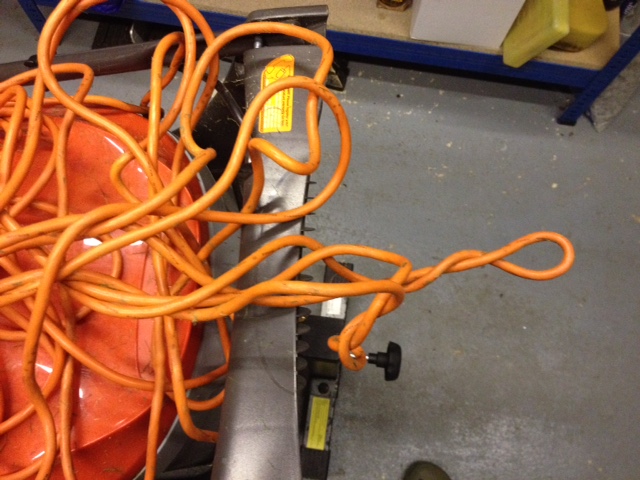Electrical safety outdoors

Although electricity makes gardening much easier, wet conditions and contact with the ground means that the risk of injury or death from electric shock is much greater than the risk from using electrical equipment indoors.
Electricity and water don’t mix, so whether it’s pouring from the heavens or there’s still dew on the ground, don’t use electrical equipment outdoors until it is dry.
By following our simple safety rules every time you work in the garden, you can easily avoid a serious accident.
Top tips to help you stay safe
- Use a Residual Current Device (RCD) with all outdoor electrical equipment. If you don't have one built into your fusebox, you should use a plug-in RCD
- Switch off and unplug electrical items before cleaning, adjusting or checking them
- Store equipment in a dry, safe place and check that it hasn't been damaged or affected by water before using it
- Be aware of where the electrical power cable is at all times
- Never use electrical equipment in wet conditions!
Fit RCDs (Residual Current Devices)
An RCD is a potentially life-saving device that protects against electric shock and reduces the risk of electrical fires. Without it, if you cut through an electrical lead, a simple job like mowing the lawn could kill you.
Any socket that may be used to plug in a lawnmower, hedge trimmer or other power tool should have RCD Protection.
Click here for more information on RCDs.
Cut the grass, not the cable
When using a lawnmower or hedge trimmer it is important to keep the cables, connections and plugs free from damage.
To stay safe while using electrical equipment in the garden follow these suggestions:
- Buy a good-quality lawn mower/ hedge trimmer from a well known manufacturer.
- Follow manufacturers' instructions closely.
- When using hedge trimmers wear gloves and goggles
- Check that the socket-outlet has RCD protection.
- Do not cut grass in wet conditions.
- Test the RCD using its test button unless you are certain that the RCD has been tested within the last 3 months.
- Wear shoes that protect your feet (not sandals).
- Keep children well away from the appliance.
- Unplug the lawn mower and wait until the blades have stopped turning before doing anything like cleaning grass blockages. Similarly unplug the hedge trimmer before removing jammed hedge trimmings.
- Take care if you are digging in the garden - electric, gas and water services may be buried below.
Make sure electric pumps don’t electrify the water
The risk of electric shock is higher when there’s water about. Incorrectly installed or damaged mains supplied pumps can result in injury or death to you, your family or even your fish.
A mains supplied electric water pump in the garden should be:
- Good quality and bought from a well known retailer.
- Protected by an RCD that is tested at least every 3 months.
- Installed in accordance with manufacturers' instructions.
- Provided with cables that are protected against accidental damage.
- Maintained in good working order, including cables and any connections.
If there’s a problem, switch off the water pump's electrical supply immediately and have the pump repaired by a registered electrician.
Maintain flexible cables and connectors
If you do not check the condition of extension leads, cables and connections and use them correctly, you could get an electric shock.
To stay safe make sure they are:
- Suitable for outdoor use - weather-resistant with moulded connections that prevent moisture seeping in.
- Rated correctly to suit the equipment you want to connect to them.
- Uncoiled, to prevent them from overheating.
- Kept clean and free from damage.
- Replaced if damage is found.
- Used according to the manufacturer's instructions.
- Positioned appropriately to prevent them being damaged.
- Kept dry.

Check the cables on mowers and other products - make sure cable is not twisted, like in the above picture, frayed or damaged!
Bright ideas for safer garden lighting
Garden lighting is commonplace, but can create a safety risk if not properly installed.
For mains supplied lighting in the garden follow these simple suggestions:
- Buy good quality electrical outdoor lighting equipment from a reputable stockist.
- Make sure any outdoor lights are weatherproof.
- Ensure light fittings used in water features are waterproof.
- Have it installed by a registered electrician in accordance with the manufacturer's instructions and BS 7671 – Requirements for Electrical Installations (IET Wiring Regulations).
- Check regularly for damaged lighting fittings, cables and connections.
- Keep maintained and free from leaves and dirt.
- Before changing any lamps, make sure you switch off the power supply.
If any faults are found, switch off the electrical supply immediately, and have them repaired by a registered electrician.
